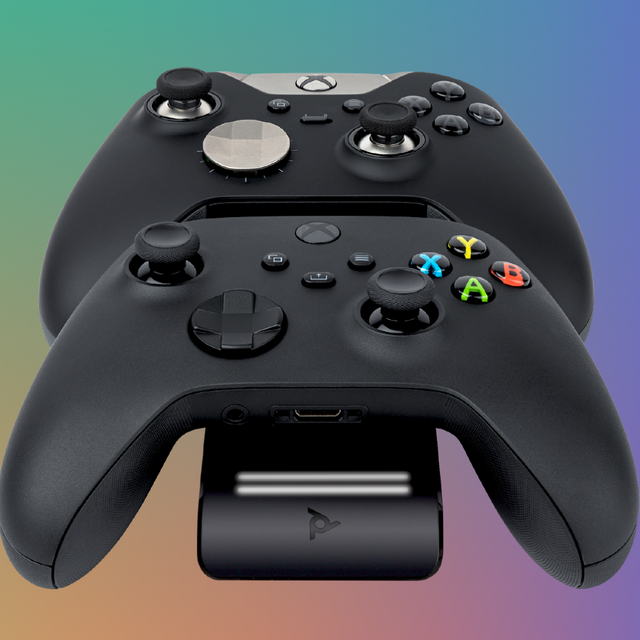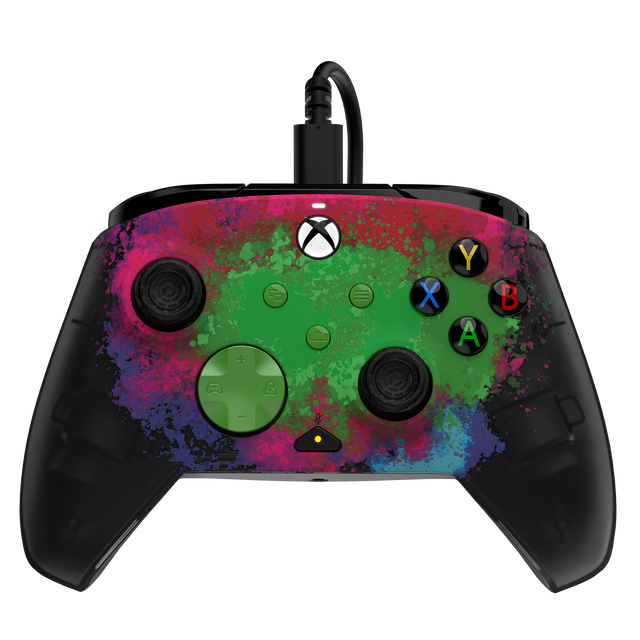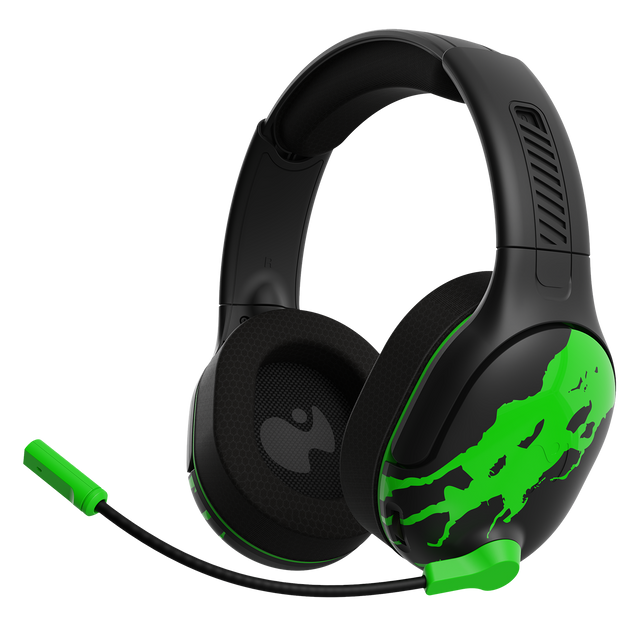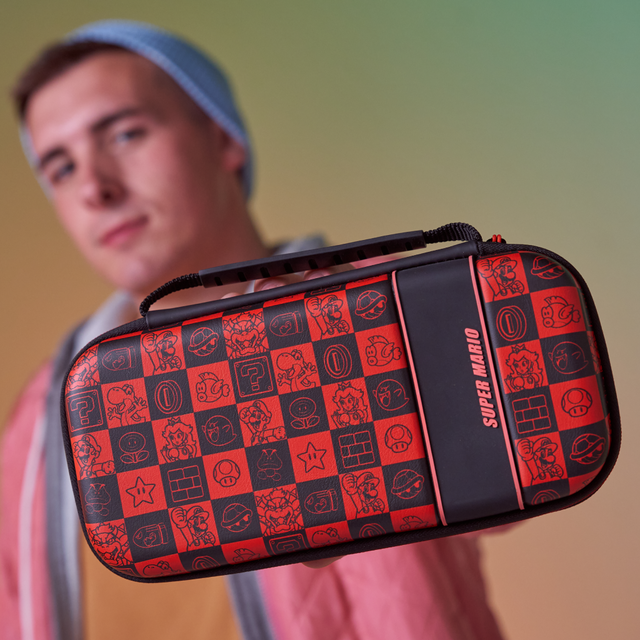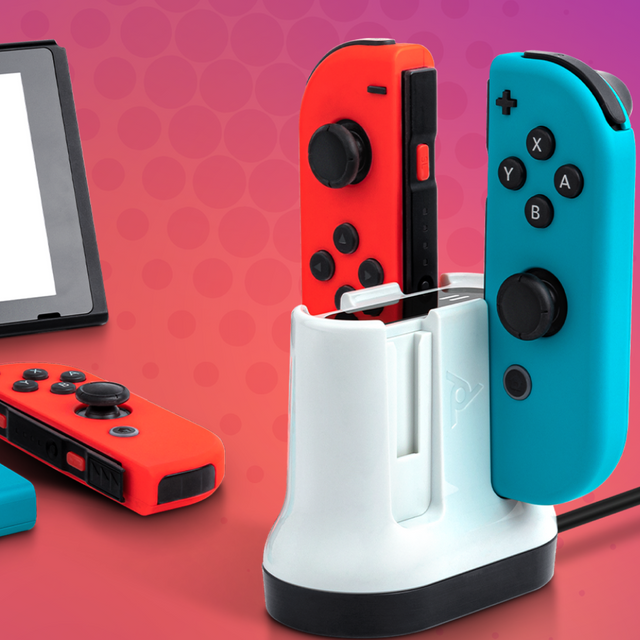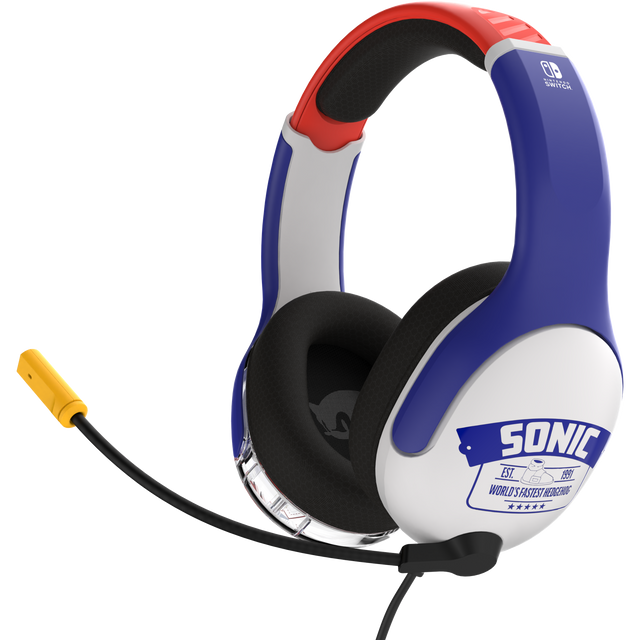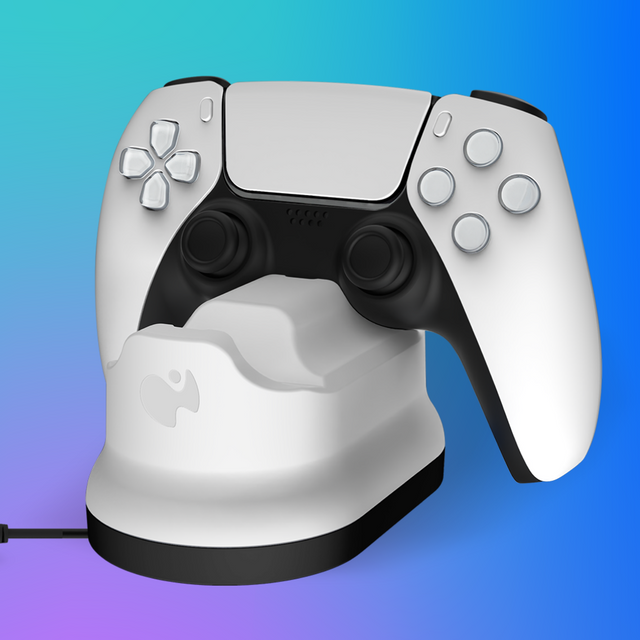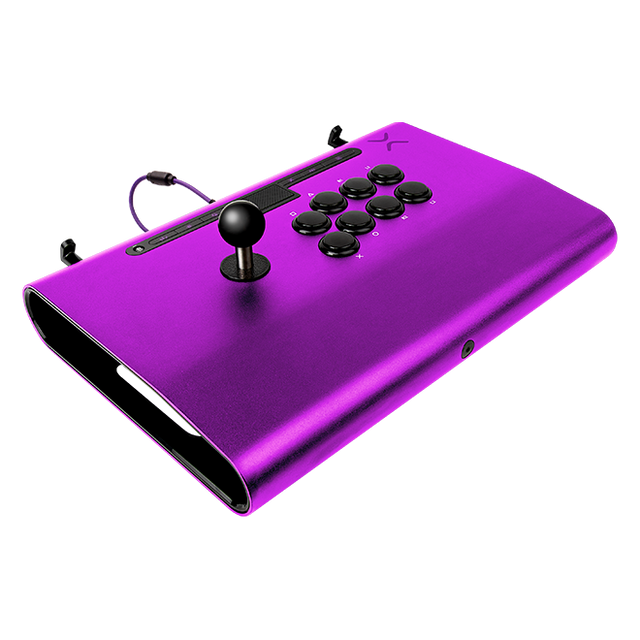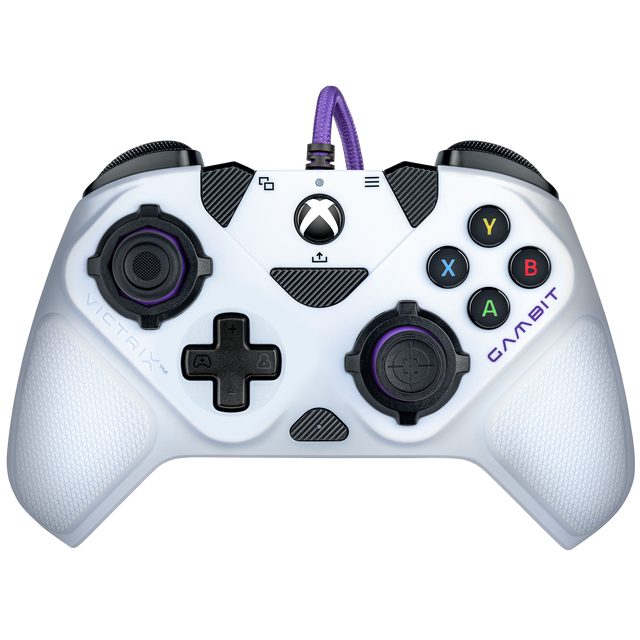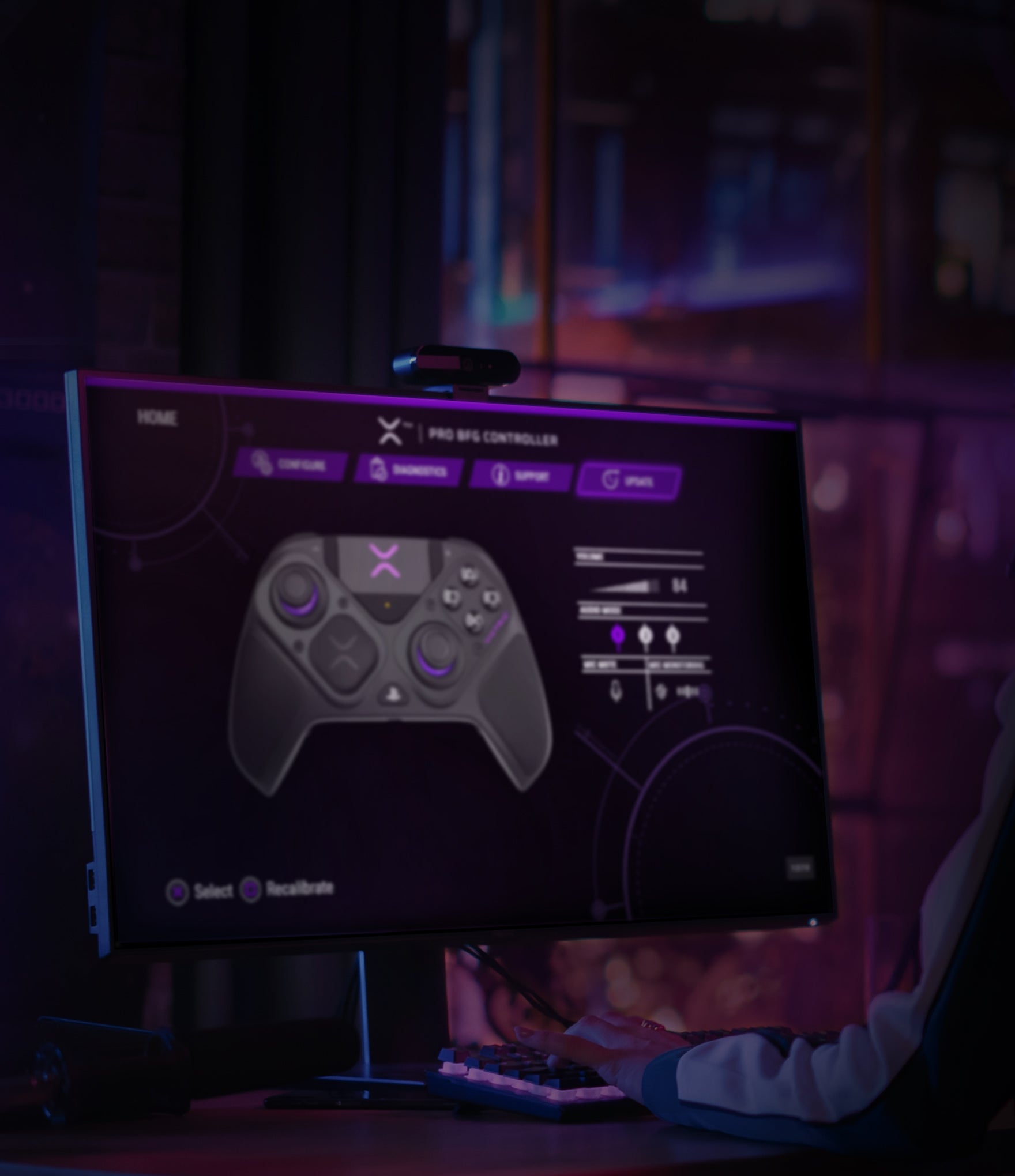General Guidance
Disposal of product at the end of its life
The crossed-out wheeled bin symbol means that this product should not be disposed of in your general household waste. Waste electrical and electronic equipment may contain hazardous substances which, if not treated properly, could lead to damage to the environment and human health. Instead, please contact your local authority for information on suitable collection sites and recycling facilities, or contact your local retailer who, in exchange for your buying an equivalent new product, may take back this product for free for recycling. This way you will be helping to ensure that the equipment is properly treated, and its parts recovered, recycled, or reused in an environmentally friendly way. Users are responsible for removing personal data from electronic devices before disposal. Please remove batteries from the products before disposal if possible.
Disposal of used batteries
Batteries and accumulators are marked with the crossed-out wheelie bin symbol indicating that batteries should not be disposed of in the regular household waste stream, but need to be collected separately. In case batteries contain more than 0,0005% mercury (Hg), 0,002% cadmium (Cd) or 0,004% lead (Pb) (by weight), the corresponding chemical symbol is displayed on the battery. By disposing of batteries correctly, you will help to avoid potentially harmful consequences for the environment and human health which could be caused by inappropriate waste management. For more detailed information on recycling of batteries, please contact your town hall, your household waste disposal service or the store where you purchased the battery.
Disposal of packaging waste
Packaging must not be treated as household waste when disposing of them but must be returned via a separate collection system. By disposing of packaging correctly, you will help to avoid potentially harmful consequences for the environment and human health which could be caused by inappropriate waste management. Depending on your location, it is also possible to dispose of non-packaging paper, such as user manuals, via dedicated collection systems. Recycling these materials will save natural resources.
Our packaging may be subject to a sorting instruction via Packaging Recycling Guidance.
Product Recycling Guidance
SMALTIMENTO DEL PRODOTTO AL TERMINE DELLA SUA VITA UTILE
Il simbolo del bidone della spazzatura barrato indica che questo prodotto non deve essere smaltito nei rifiuti domestici generici. I rifiuti di apparecchiature elettriche ed elettroniche possono contenere sostanze pericolose che, se non trattate correttamente, possono causare danni all’ambiente e alla salute. Ti invitiamo invece a contattare l’autorità locale per informazioni sui siti di raccolta e sugli impianti di riciclaggio idonei, oppure contattare il rivenditore locale che, in cambio dell’acquisto di un nuovo prodotto equivalente, potrebbe ritirare questo prodotto gratuitamente per il riciclaggio. In questo modo contribuirai a garantire che l’apparecchiatura sia trattata correttamente e che le sue parti siano recuperate, riciclate o riutilizzate in modo ecologico. Gli utenti sono responsabili della rimozione dei dati personali dai dispositivi elettronici prima dello smaltimento. Rimuovere le batterie dai prodotti prima dello smaltimento, se possibile.
SMALTIMENTO DELLE BATTERIE USATE
Le batterie e gli accumulatori sono contrassegnati dal simbolo del bidone della spazzatura barrato indicante che le batterie non devono essere smaltite nel normale flusso di rifiuti domestici, ma devono essere raccolte separatamente. Nel caso in cui le batterie contengano più dello 0,0005% di mercurio (Hg), 0,002% di cadmio (Cd) o 0,004% di piombo (Pb) (in peso), sulla batteria viene visualizzato il simbolo chimico corrispondente. Smaltendo correttamente le batterie, contribuirai a evitare conseguenze potenzialmente dannose per l’ambiente e la salute che potrebbero essere causate da una gestione inappropriata dei rifiuti. Per informazioni più dettagliate sul riciclaggio delle batterie, rivolgiti al tuo comune, al servizio di smaltimento dei rifiuti domestici o al negozio dove hai acquistato la batteria.
SMALTIMENTO DEI RIFIUTI DI IMBALLAGGIO
L’imballaggio non deve essere trattato come rifiuto domestico durante lo smaltimento, ma deve essere restituito tramite un sistema di raccolta separato. Smaltendo correttamente l’imballaggio, contribuirai a evitare conseguenze potenzialmente dannose per l’ambiente e la salute umana che potrebbero essere causate da una gestione inappropriata dei rifiuti. A seconda della località, è anche possibile smaltire la carta non da imballaggio, come i manuali utente, tramite sistemi di raccolta dedicati. Il riciclaggio di questi materiali consentirà di risparmiare risorse naturali.
Il nostro imballaggio può essere soggetto a istruzioni di smistamento tramite la Guida al riciclaggio degli imballaggi.
GUIDA AL RICICLAGGIO DEI PRODOTTI
Disposal of product at the end of its life
The crossed-out wheeled bin symbol means that this product should not be disposed of in your general household waste. Waste electrical and electronic equipment may contain hazardous substances which, if not treated properly, could lead to damage to the environment and human health. Instead, please contact your local authority for information on suitable collection sites and recycling facilities, or contact your local retailer who, in exchange for your buying an equivalent new product, may take back this product for free for recycling. This way you will be helping to ensure that the equipment is properly treated, and its parts recovered, recycled, or reused in an environmentally friendly way. Users are responsible for removing personal data from electronic devices before disposal. Please remove batteries from the products before disposal if possible.
Disposal of used batteries
Batteries and accumulators are marked with the crossed-out wheelie bin symbol indicating that batteries should not be disposed of in the regular household waste stream, but need to be collected separately. In case batteries contain more than 0,0005% mercury (Hg), 0,002% cadmium (Cd) or 0,004% lead (Pb) (by weight), the corresponding chemical symbol is displayed on the battery. By disposing of batteries correctly, you will help to avoid potentially harmful consequences for the environment and human health which could be caused by inappropriate waste management. For more detailed information on recycling of batteries, please contact your town hall, your household waste disposal service or the store where you purchased the battery.
Disposal of packaging waste
Packaging must not be treated as household waste when disposing of them but must be returned via a separate collection system. By disposing of packaging correctly, you will help to avoid potentially harmful consequences for the environment and human health which could be caused by inappropriate waste management. Depending on your location, it is also possible to dispose of non-packaging paper, such as user manuals, via dedicated collection systems. Recycling these materials will save natural resources.
Our packaging may be subject to a sorting instruction via Packaging Recycling Guidance.
Product Recycling Guidance
ENTSORGUNG DES PRODUKTS AM ENDE SEINER LEBENSDAUER
Das durchgestrichene Mülleimersymbol bedeutet, dass dieses Produkt nicht im normalen Hausmüll entsorgt werden darf. Elektro- und Elektronikaltgeräte können gefährliche Stoffe enthalten, die bei unsachgemäßer Behandlung zu Schäden für die Umwelt und die menschliche Gesundheit führen können. Wenden Sie sich stattdessen an Ihre örtliche Behörde, um Informationen über geeignete Sammelstellen und Recyclingeinrichtungen zu erhalten, oder wenden Sie sich an Ihren örtlichen Einzelhändler, der dieses Produkt im Austausch gegen den Kauf eines gleichwertigen neuen Produkts kostenlos zum Recycling zurücknehmen kann. Auf diese Weise tragen Sie dazu bei, dass die Geräte ordnungsgemäß behandelt und ihre Teile auf umweltfreundliche Weise recycelt, recycelt oder wiederverwendet werden. Benutzer sind dafür verantwortlich, vor der Entsorgung personenbezogene Daten von elektronischen Geräten zu entfernen. Bitte entfernen Sie nach Möglichkeit vor der Entsorgung die Batterien aus den Produkten.
ENTSORGUNG GEBRAUCHTER BATTERIEN
Batterien und Akkus sind mit dem durchgestrichenen Mülltonnensymbol gekennzeichnet, das darauf hinweist, dass Batterien nicht im normalen Hausmüll entsorgt werden dürfen, sondern separat gesammelt werden müssen. Wenn Batterien mehr als 0,0005 % Quecksilber (Hg), 0,002 % Cadmium (Cd) oder 0,004 % Blei (Pb) (nach Gewicht) enthalten, wird das entsprechende chemische Symbol auf der Batterie angezeigt. Durch die ordnungsgemäße Entsorgung von Batterien tragen Sie dazu bei, potenziell schädliche Folgen für die Umwelt und die menschliche Gesundheit zu vermeiden, die durch unsachgemäße Abfallentsorgung verursacht werden könnten. Für detailliertere Informationen zum Recycling von Batterien wenden Sie sich bitte an Ihr Rathaus, Ihren Hausmüllentsorgungsdienst oder an das Geschäft, in dem Sie die Batterie gekauft haben.
ENTSORGUNG VON VERPACKUNGSABFÄLLEN
Verpackungen dürfen bei der Entsorgung nicht als Hausmüll behandelt werden, sondern müssen über ein separates Sammelsystem zurückgegeben werden. Durch die ordnungsgemäße Entsorgung von Verpackungen tragen Sie dazu bei, potenziell schädliche Folgen für die Umwelt und die menschliche Gesundheit zu vermeiden, die durch unsachgemäße Abfallbewirtschaftung verursacht werden könnten. Abhängig von Ihrem Standort ist es auch möglich, Nichtverpackungspapier, wie z. B. Bedienungsanleitungen, über spezielle Sammelsysteme zu entsorgen. Das Recycling dieser Materialien spart natürliche Ressourcen.
Für unsere Verpackungen kann eine Sortieranweisung gemäß der Richtlinie zum Verpackungsrecycling gelten.
RECYCLINGANLEITUNG FÜR PRODUKTE
ELIMINACIÓN DEL PRODUCTO AL FINAL DE SU VIDA ÚTIL
El símbolo de contenedor con ruedas tachado significa que este producto no debe desecharse en los residuos domésticos generales. Los residuos de equipos eléctricos y electrónicos pueden contener sustancias peligrosas que, si no se tratan adecuadamente, podrían provocar daños al medio ambiente y a la salud humana. En su lugar, póngase en contacto con su autoridad local para obtener información sobre los centros de recogida e instalaciones de reciclaje adecuados, o póngase en contacto con su minorista local que, a cambio de su compra de un producto nuevo equivalente, puede devolver este producto de forma gratuita para su reciclaje. De esta forma, ayudará a garantizar que el equipo se trate correctamente y que sus piezas se recuperen, reciclen o reutilicen de forma respetuosa con el medio ambiente. Los usuarios son responsables de eliminar los datos personales de los dispositivos electrónicos antes de su eliminación. Si es posible, retire las baterías de los productos antes de desecharlos.
ELIMINACIÓN DE BATERÍAS USADAS
Las baterías y acumuladores están marcados con el símbolo de contenedor tachado para ruedas que indica que las baterías no deben desecharse en el flujo normal de residuos domésticos, sino que deben recogerse por separado. En caso de que las baterías contengan más del 0,0005 % de mercurio (Hg), 0,002 % de cadmio (Cd) o 0,004 % de plomo (Pb) (por peso), se muestra el símbolo químico correspondiente en la batería. Al desechar las baterías correctamente, ayudará a evitar consecuencias potencialmente dañinas para el medio ambiente y la salud humana que podrían estar causadas por una gestión inadecuada de los residuos. Para obtener información más detallada sobre el reciclaje de baterías, póngase en contacto con su ayuntamiento, su servicio de eliminación de residuos domésticos o la tienda donde compró la batería.
ELIMINACIÓN DE RESIDUOS DE EMBALAJE
Los envases no deben tratarse como residuos domésticos al desecharlos, sino que deben eliminarse a través de un sistema de recogida independiente. Al desechar el embalaje correctamente, ayudará a evitar consecuencias potencialmente dañinas para el medio ambiente y la salud humana que podrían estar causadas por una gestión inadecuada de los residuos. Dependiendo de su ubicación, también es posible desechar el papel que no es embalaje, como los manuales de usuario, a través de sistemas de recogida dedicados. Reciclar estos materiales ahorrará recursos naturales.
Nuestro embalaje puede estar sujeto a instrucciones de clasificación a través de la Guía de reciclaje de embalajes.
GUÍA DE RECICLAJE DE PRODUCTOS
ELIMINAÇÃO DO PRODUTO NO FINAL DA SUA VIDA ÚTIL
O símbolo do caixote do lixo com uma cruz significa que este produto não deve ser eliminado junto com lixo doméstico geral. Os resíduos de equipamentos elétricos e eletrónicos podem conter substâncias perigosas que, se não forem devidamente tratadas, podem causar danos ao ambiente e à saúde humana. Em vez disso, contacte a sua autoridade local para obter informações sobre locais de recolha adequados e instalações de reciclagem, ou contacte o seu revendedor local que, em troca da sua compra de um produto novo equivalente, pode recolher este produto gratuitamente para reciclagem. Desta forma, estará a ajudar a garantir que o equipamento é devidamente tratado e que as suas peças são recuperadas, recicladas ou reutilizadas de forma ecológica. Os utilizadores são responsáveis por remover os dados pessoais dos dispositivos eletrónicos antes da eliminação. Se possível, retire as baterias dos produtos antes de os eliminar.
ELIMINAÇÃO DE BATERIAS USADAS
As baterias e os acumuladores estão marcados com o símbolo do caixote do lixo com uma cruz indicando que as baterias não devem ser eliminadas juntamente com o fluxo normal de resíduos domésticos, mas devem sim ser recolhidas separadamente. Caso as baterias contenham mais de 0,0005% de mercúrio (Hg), 0,002% de cádmio (Cd) ou 0,004% de chumbo (Pb) (por peso), o símbolo químico correspondente é apresentado na bateria. Ao eliminar as baterias de forma adequada, ajudará a evitar consequências potencialmente prejudiciais para o ambiente e para a saúde humana, que podem ser causadas por uma gestão inadequada dos resíduos. Para obter informações mais detalhadas sobre a reciclagem de baterias, contacte a sua câmara municipal, o prestador de serviços de eliminação de resíduos domésticos ou a loja onde adquiriu a bateria.
ELIMINAÇÃO DE RESÍDUOS DE EMBALAGENS
As embalagens não devem ser tratadas como lixo doméstico ao eliminá-las, devendo sim ser eliminadas através de um sistema de recolha separado. Ao eliminar as embalagens de forma adequada, ajudará a evitar consequências potencialmente prejudiciais para o ambiente e para a saúde humana, que podem ser causadas por uma gestão inadequada dos resíduos. Dependendo da sua localização, também é possível eliminar o papel não incluído na embalagem, como manuais do utilizador, através de sistemas de recolha dedicados. Reciclar estes materiais irá poupar recursos naturais.
As nossas embalagens podem estar sujeitas a uma instrução de triagem através de Orientação de Reciclagem de Embalagens.
ORIENTAÇÕES SOBRE RECICLAGEM DE PRODUTOS
PRODUCT WEGGOOIEN BIJ HET EINDE VAN DE LEVENSDUUR
Het symbool van de doorgekruiste afvalcontainer betekent dat dit product niet mag worden weggegooid bij het huishoudelijk afval. Weggegooide elektrische en elektronische apparatuur kan gevaarlijke stoffen bevatten die, als ze niet op de juiste manier worden behandeld, kunnen leiden tot schade aan het milieu en de gezondheid van de mens. Neem in plaats daarvan contact op met je lokale autoriteit voor informatie over geschikte inzamellocaties en recyclingfaciliteiten, of contacteer je lokale detailhandelaar die, in ruil voor je aankoop van een gelijkwaardig nieuw product, dit product mogelijk gratis terugneemt voor recycling. Op deze manier help je ervoor te zorgen dat de apparatuur op de juiste manier wordt behandeld en dat de onderdelen ervan op een milieuvriendelijke manier worden teruggewonnen, gerecycled of hergebruikt. Gebruikers zijn verantwoordelijk voor het verwijderen van persoonsgegevens uit elektronische apparaten voordat ze worden weggegooid. Verwijder indien mogelijk de batterijen uit de producten voordat je ze weggooit.
WEGGOOIEN VAN GEBRUIKTE BATTERIJEN
Batterijen en accumulatoren zijn gemarkeerd met het symbool van de doorgestreepte afvalcontainer, wat betekent dat batterijen niet mogen worden weggegooid in de normale huishoudelijke afvalstroom, maar apart moeten worden ingezameld. Als batterijen meer dan 0,0005% kwik (Hg), 0,002% cadmium (Cd) of 0,004% lood (Pb) (in gewicht) bevatten, wordt het bijbehorende chemische symbool op de batterij weergegeven. Door batterijen op de juiste manier weg te gooien, help je mogelijke schadelijke gevolgen voor het milieu en de gezondheid van de mens door ongepast afvalbeheer te voorkomen. Neem voor meer gedetailleerde informatie over het recyclen van batterijen contact op met je gemeentehuis, je huishoudelijke afvalverwerkingsdienst of de winkel waar je de batterij hebt gekocht.
WEGGOOIEN VAN VERPAKKINGSAFVAL
Verpakkingen mogen niet als huishoudelijk afval worden weggegooid, maar moeten worden geretourneerd via een afzonderlijk inzamelsysteem. Door verpakkingen op de juiste manier weg te gooien, help je mogelijke schadelijke gevolgen voor het milieu en de gezondheid van de mens door ongepast afvalbeheer te voorkomen. Afhankelijk van je locatie is het ook mogelijk om niet-verpakkingspapier, zoals gebruikershandleidingen, weg te gooien via speciale verzamelsystemen. Het recyclen van deze materialen bespaart natuurlijke hulpbronnen.
Onze verpakkingen kunnen onderworpen zijn aan een sorteerinstructie onder de richtlijnen voor verpakkingsrecycling.
RICHTLIJNEN VOOR PRODUCTRECYCLING
ÉLIMINATION DU PRODUIT EN FIN DE VIE
Le symbole de poubelle à roulettes barrée signifie que ce produit ne doit pas être jeté dans vos ordures ménagères. Les déchets d’équipements électriques et électroniques peuvent contenir des substances dangereuses qui, si elles ne sont pas traitées correctement, pourraient endommager l’environnement et la santé humaine. Veuillez plutôt contacter votre autorité locale pour obtenir des informations sur les sites de collecte et les installations de recyclage appropriés, ou contacter votre revendeur local qui, en échange de votre achat d’un nouveau produit équivalent, reprendra peut-être ce produit gratuitement pour le recycler. De cette façon, vous contribuerez à garantir que l’équipement est correctement traité et que ses pièces sont récupérées, recyclées ou réutilisées de manière respectueuse pour l’environnement. Les utilisateurs sont responsables de la suppression des données à caractère personnel des appareils électroniques avant leur élimination. Veuillez retirer les batteries des produits avant de les jeter, si possible.
ÉLIMINATION DES BATTERIES USAGÉES
Les batteries et les accumulateurs sont marqués du symbole de poubelle à roulettes barrée indiquant que les batteries ne doivent pas être jetées avec les déchets ménagers normaux, mais doivent être collectées séparément. Si les batteries contiennent plus de 0,0005 % de mercure (Hg), 0,002 % de cadmium (Cd) ou 0,004 % de plomb (Pb) (en poids), le symbole chimique correspondant s’affiche sur la batterie. En jetant correctement les batteries, vous contribuerez à éviter les conséquences potentiellement nocives pour l’environnement et la santé humaine qui pourraient être causées par une gestion inappropriée des déchets. Pour plus d’informations sur le recyclage des batteries, veuillez contacter votre mairie, votre service d’élimination des déchets ménagers ou le magasin où vous avez acheté la batterie.
ÉLIMINATION DES DÉCHETS D’EMBALLAGE
Les emballages ne doivent pas être traités comme des déchets ménagers lors de leur élimination, mais doivent être retournés via un système de collecte distinct. En jetant correctement l’emballage, vous contribuerez à éviter les conséquences potentiellement nocives pour l’environnement et la santé humaine qui pourraient être causées par une gestion inappropriée des déchets. En fonction de votre emplacement, il est également possible d’éliminer le papier non emballé, tel que les manuels d’utilisation, via des systèmes de collecte dédiés. Le recyclage de ces matériaux permettra d’économiser les ressources naturelles.
Nos emballages peuvent faire l’objet d’une instruction de tri via les Directives de recyclage des emballages.
CONSEILS SUR LE RECYCLAGE DES PRODUITS
US and Canada
Recycle locally and responsibly
A variety of programs allow you to recycle your PDP products locally. PDP recommends that you choose a
recycler with a commitment to supporting environmental stewardship who will handle the donated material in a
responsible way.
U.S. Residents, please use the following link to find a recycler in your area:
Canadian residents, please use the following links to find recyclers in your area:
La nostra azienda si impegna costantemente a ridurre gli imballaggi, a rendere il più possibile riciclabili
quelli già esistenti e soprattutto ad essere sempre conformi alle nuove disposizioni in materia di
smaltimento e riciclo degli imballaggi.
Il nuovo regolamento sull’obbligo di etichettatura ambientale, che entrerà in vigore a partire dal 1°
Gennaio 2023, prevede la stampa delle informazioni necessarie per consentire l’identificazione dei materiali
impiegati negli imballi.
Da tale data, tutti i nostri prodotti saranno contrassegnati con chiare icone che indicano il tipo di
materiale di cui è costituito l’imballo, al fine di facilitarne la raccolta e il riutilizzo.
Inoltre, per agevolare la reperibilità di tali informazioni, sarà presente un codice QR che rimanda alla
suddetta pagina dove viene fornito l'elenco dettagliato delle varie tipologie di materiali degli imballi dei
nostri prodotti.
Information for users in the United Kingdom
WEE/MM3504AA/PRO
Free collection points for WEEE and portable batteries:
https://www.recyclenow.com/recycle-an-item
At PDP we make sure to use as little packaging as possible and to make it as recyclable as possible.
Recycling packaging is easy when it's made from separate types of materials, so you can easily dispose of
the different materials in the appropriate recycling bins.
For this reason, we have marked our packaging materials with the appropriate symbols for each type of
material. The overview below shows you how these different types of materials can be recycled.
Kostenlose Sammelstellen für Elektroaltgeräte und Gerätebatterien:
https://entsorgungsstellen.e-schrott-entsorgen.org/
Bei PDP achten wir darauf, so wenig Verpackungen wie möglich zu verwenden und diese möglichst wieder
verwertbar zu machen.
Das Recycling von Verpackungen ist einfach, wenn sie aus einzelnen Materialtypen hergestellt sind, sodass
Sie die verschiedenen Materialien leicht in die entsprechenden Recyclingtonnen entsorgen können.
Aus diesem Grund haben wir unsere Verpackungsmaterialien mit den entsprechenden Symbolen je Materialart
gekennzeichnet. Die nachfolgende Übersicht zeigt Ihnen, wie diese verschiedenen Materialtypen recycelt
werden können.
En PDP trabajamos para reducir al máximo los envases que utilizamos y para que los que tenemos sean lo más
reciclables posible.
Es fácil reciclar los envases cuando están hechos de un solo tipo de material y se pueden colocar fácilmente
los diferentes materiales en los contenedores de reciclaje correctos. Da tale data, tutti i nostri prodotti
saranno contrassegnati con chiare icone che indicano il tipo di materiale di cui è costituito l’imballo, al
fine di facilitarne la raccolta e il riutilizzo.
Por lo tanto, hemos marcado los materiales de nuestros envases con los iconos de tipo de material estándar.
A continuación puedes ver cómo se pueden reciclar estos diferentes tipos de materiales.
Na PDP, nos certificamos de usar o mínimo possível de embalagens e torná-las o mais recicláveis possível.
A reciclagem de embalagens é fácil quando é feita de tipos separados de materiais, para que você possa
descartar facilmente os diferentes materiais nas lixeiras de reciclagem apropriadas.
Por isso, marcamos nossos materiais de embalagem com os símbolos apropriados para cada tipo de material. A
visão geral abaixo mostra como esses diferentes tipos de materiais podem ser reciclados.
Bij PDP proberen we het verpakkingsmateriaal dat we gebruiken zo veel mogelijk te beperken en de
verpakkingen die we hebben zo recycleerbaar mogelijk te maken.
Het is eenvoudig om verpakkingen te recyclen als ze uit één materiaalsoort bestaan en je de verschillende
materialen gemakkelijk in de juiste recycle bakken kunt gooien.
Daarom hebben wij onze verpakkingsmaterialen gemarkeerd met de pictogrammen van de standaard
materiaalsoorten en hieronder kan je zien hoe deze verschillende materiaalsoorten kunnen worden gerecycled.
Chez PDP, nous veillons à utiliser le moins d'emballages possible et à les rendre aussi recyclables que
possible.
Le recyclage des emballages est facile lorsqu'ils sont fabriqués à partir de types de matériaux distincts,
vous pouvez donc facilement jeter les différents matériaux dans les bacs de recyclage appropriés.
Pour cette raison, nous avons marqué nos matériaux d'emballage avec les symboles appropriés pour chaque type
de matériau. L'aperçu ci-dessous vous montre comment ces différents types de matériaux peuvent être
recyclés.


